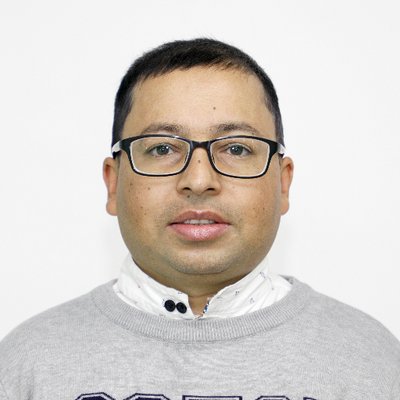Miscellaneous
Poll vault
As three layers of elections are necessary to implement the federal structure outlined in the 2015 constitution, political parties are coming together to form electoral alliances or to announce party mergers.
Mohan Guragain
As three layers of elections are necessary to implement the federal structure outlined in the 2015 constitution, political parties are coming together to form electoral alliances or to announce party mergers.
This trend started with several political entities, mainly in the plains, joining forces to form the Sanghiya Samajbadi Forum-Nepal, Nepal Loktantrik Forum and the Rastriya Janata Party-Nepal in recent years.
Now the latest episode, the electoral alliance between the CPN-UML, CPN (Maoist Centre) and the Naya Shakti, with an ultimate goal of forming a united party after the federal and provincial elections are over, has sent shockwaves in the corridors of power.
An agent for this change is the minimum three percent vote threshold that is required for a political outfit to be recognised as a national party.
The proportional representation system of election, however, makes it difficult for a single party to get a majority to form its own government. This system, initiated in 2008, has elected two hung parliaments, leading to government changes almost every year since.
The “leftist” alliance of the three parties has said it wants to put an end to the chronic instability that robs the country of its potential.
On the other end of the spectrum, fearful of a possible communist takeover, the ruling Nepali Congress has launched its own bid of piecing together a “democratic” front involving what are two emerging parties in the Madhes, the diminishing Loktantrik Forum and two royalist splinter groups.
With elections for state and central parliaments imminent, parties are taking cues from the recently concluded local-level elections where the UML won the most number of seats that count in the National Assembly elections, and ultimately in the presidential vote.
While the NC failed to top the local poll chart by winning an overwhelming number of seats in the third phase of local elections in Province 2 as it had hoped, the UML was pushed to the fifth spot in the eight districts, even behind the Maoist Centre which was a distant third player in the earlier two rounds of vote elsewhere.
The UML sought the alliance because the party feared that the Congress with the help of the Maoists will hold them out of power, even if the UML emerges as the largest party in the upcoming polls.
A united ‘leftist’ force has been the dream of communist sympathisers who rue over how state power is out of their grip due to fragmentation and infighting.
In the Maoist fold, top leaders pride their history of being the revolutionary party which brought the old regime to its knees, abolished the monarchy and established republicanism.
However, despite their many triumphs, the Maoists have suffered several break-ups and erosion of their support base. Maoist Chairman Pushpa Kamal Dahal had often warned that the party was on the verge of dissolution unless the downward spiral was reversed.
The Naya Shakti that started with a bang was disappearing with a whimper after influential members walked away.
So the alliance has once again reinvigorated the fading goal of democratic socialism that the communist parties have been advocating with little success.
At the least, the UML has succeeded in splitting the Congress-Maoist coalition that was formed by pulling down the KP Sharma Oli-led government.
The perceived ganging up of forces at home and outside against the party led UML Chair Oli to rethink his failing strategy of pushing the Maoists to the brink by eating away at their constituencies.
However, questions are being asked about whether the union can survive the disputes over common candidate selection and the outcome of unpredictable polls.
While advocates of liberalism are worried if a possible landslide victory by the “leftist” alliance in the upcoming elections will give rise to authoritarian rule.
There are voices for and against the “leftist” alliance. Some other left-of-the-centre leaders have hailed the initiative as a belated move on the part of Oli and Dahal to reconcile their differences, while others have dismissed the union as a futile, “unnatural” bond motivated by personal ambition and greed for power.
Regardless of the motive of the actual players, this coming together is sure to shape the future political course by offering an opportunity for the Congress to engage in introspection and to devise policies that have the people at their heart.
Hopefully, the Congress will move beyond its idle talk for “saving democracy” as it promotes individual freedom at the cost of public welfare.
The leftist forces, which are often keen to gamble their strength in daring moves as this, stand to lose if they take public support for granted.
In a democracy, people are the ultimate arbiters. The electorate serves merciless justice even when the police, bureaucracy, judiciary and the government fail to do their duties.
The people hold the power to right the wrongs and to punish every state entity both peacefully and by violent means. So, the parties would be foolhardy not to fear the electorate.
With elections around the corner, parties must commit to improving the current frustrating state of affairs.
Nepali youths at present have a general feeling that they are staying in the country just because they have no other options.
Most of our citizens are more than happy to abandon the country for better life and opportunities abroad.
But some still choose to brave treacherous living conditions both in the cities and rural areas hoping that things will get better one day.
Today, it takes immense courage and determination for people to thrive in this country.
Political parties cannot be forgiven if they do not respect the aspirations and indomitable spirit of the people who stand by the nation in its moment of transformation. The chances are, the opportunity may never come again.
- The writer tweets @GuragainMohan




 9.7°C Kathmandu
9.7°C Kathmandu










